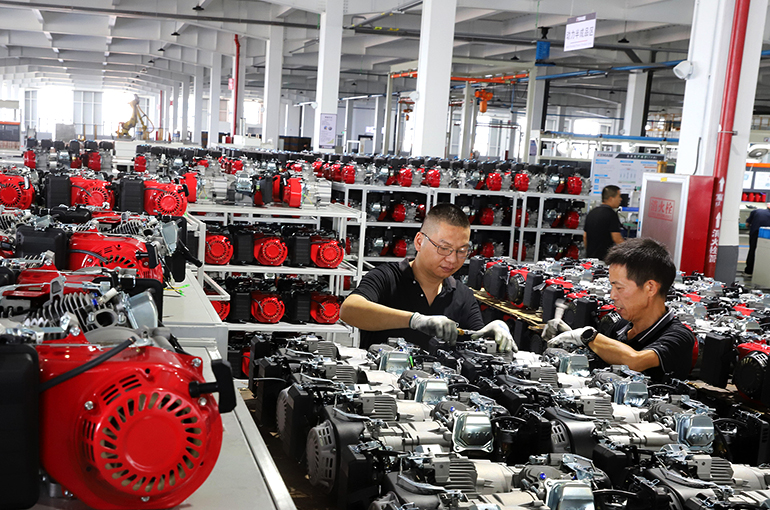 Chinese Auto Parts Exporters Pivot to Europe Amid US Tariff Pressures
Chinese Auto Parts Exporters Pivot to Europe Amid US Tariff Pressures(Yicai) July 4 -- Chinese car parts manufacturers are turning their attention to Europe as growth in the United States is dented by the recently imposed steep tariffs. Europe offers these firms strong potential, but also poses significant challenges due to its complex compliance requirements.
“Our business growth in the US has slowed down, while our European operations are expanding by over 20 percent every month,” Huang Hongjuan, deputy general manager of Guangzhou Yinuozhe Cross-Border E-commerce, told Yicai.
Although the US remains Yinuozhe’s largest market, the dip in growth there has been offset by gains in other markets, resulting in an overall 30 percent jump in exports in the first half, Huang said. Europe in particular has emerged as one of the fastest-growing markets. The firm, which specializes in auto parts, has been active in the European market for a decade.
While breaking into the European market is tough for Chinese auto parts firms, the potential rewards there are greater than in the US, Pang Tao, general manager of sales and category management for US e-retailer eBay’s China arm, said at the company’s annual auto parts export conference held on July 2 in Guangzhou with the theme of tapping into the European market.
Different Markets
This year, Europe is growing much faster than the US, making it a key area of focus for China’s cross-border trade.
Europe, like the US, is one of the biggest car parts markets in the world due to the high level of car ownership, Pang said. However, Europe is not a single unified market like the US, and each country has its own compliance regulations, so entering the region is not a straightforward process. As a result, Chinese companies still only hold a small share of the market there.
Shenzhen Juncan E-Commerce has experienced significant growth since it entered the European market five years ago and sales are still growing at a rate of over 20 percent a year, said the firm’s eBay manager Luo Longcheng,
“Customers in Germany and the UK are more willing to pay for more expensive products and they value after-sales service,” he said. This gives Chinese companies with strong supply chains and fast delivery services a competitive advantage.
Broader Challenges
Meanwhile, Chinese exporters face the broader challenge that Europe may also raise barriers. In May, there were reports that the European Union plans to abolish the tax exemption on small, low-value imported parcels worth less than EUR150 and may start imposing handling fees on each parcel.
To gain a foothold in the European market, Chinese auto parts companies need to leverage their high-quality supply chains, Pang said. European car models are also very different from those in the US, and each region has its own popular brands. This means Chinese companies need to gather more detailed, localized data.
In Pang’s view, the tougher standards in Europe could actually protect companies that manage to enter the market by keeping out low-quality competitors.
“Competition based on product quality and performance will persist for a long time,” he said. In the short term, the European market still offers significant growth opportunities for Chinese auto parts companies.
Editor: Kim Taylor